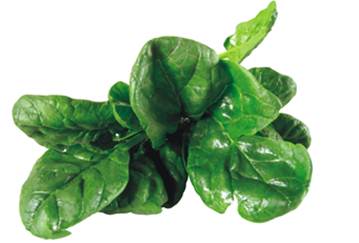Long time ago, pregnant mothers were
advised to absorb folic acid. The main reason is that folic acid can prevent
mental disability such as spina bifida. Many countries including South Africa
are trying to minimize the impact of various types of nerve disability through
programs to supplement essential nutrients. As a result, spina bifida decreases
on global scale. In fact, symptoms of nerve injury have been reduced 25 – 50%
when the nutritional program of National Institute of Nutrition is implemented.
However, does folic acid absorbed additionally cause side effects to health?

Folic
acid is an important element for a healthy pregnancy.
Scientific evidences in last decades
demonstrated that the absorption of folate helped the body prevent the
development of common types of cancer, and the most convincing evidences are
rectal cancer, breast cancer, lung cancer and pancreatic cancer as well as
other kinds of trauma. Nevertheless, the basic function of folate is the
combined element to build nucleotides – a compound forming DNA. This also means
that if the body is in excess of this vitamin, it will accelerate the process
of cell division, which leads to the rapid transition of cell development - a
cause of pre-cancer and cancer. Scientific evidences of excess folate effects
have been found since 1940s. Nowadays, there are some researches on animal and
human which also prove clearly this point. In case the body has enough folate,
folate will be the substance preventing cancer. On the other hand, in some
special situations, excessive vitamin and folate absorption will quickly
replicate cancer cells and stimulate tumor growth.
This symptom is called “duel effect of
folate”. This effect makes the setting of safe absorption of folate meet many
difficulties because it emphasizes and important point: concentration of trace
elements can be good for this person but it may be dangerous for another one.
Currently, all food and drug industries are
making use of folic acid – the chemical which are not naturally extracted from
folate vitamin to manufacture complementary medicines. This is very dangerous,
because when folic acid is absorbed through the gut membrane, they will be
converted into natural biological vitamins via enzyme and biochemical process.
The absorption of too much folic will saturate this transition mechanism,
causing the appearance of folic acid in blood vessels – this is oxidized folate
which is not metabolized and harmful to health. Although daily cereals only
provide 20% of essential folic acid, Framingham study shows that folate will
increase to 62% for those using vitamin supplement drugs.
The importance of folic acid in pregnancy
During pregnancy, the fetus needs to absorb
folic acid for the neural development including brain and spinal cord. If it is
in short of folic acid, the nervous system will develop unevenly, which cause
spina bifida or waterlogged brain. Babies with waterlogged brain don’t often
survive for a long time whereas the spina bifida makes the baby have birth
defects.
When being absorbed before and during
pregnancy, folic acid can reduce injuries at birth, such as cleft lips or cleft
palate, seizures during pregnancy, premature birth, low weigh birth,
miscarriage or ectopic childbirth.
Although there is no scientific reports
which give evidences about side effects of folic acid, experts recommend that
you should not absorb more than 1mg of folic acid every day to ensure safety.
Food sources of folate
The richest sources of folate include dark
green vegetables, especially spinach, asparagus and broccoli which contain up
to 131 ug (microgram), 121 ug and 51.5 ug of folate in haft cup of vegetables.
Because folate often exists under 150 different forms, and folate in food is
usually lost 50 – 90% during storage, cooking and high temperature, the rate of
folate absorbed actually frequently less than expected. Additional grain often
contains 672 ug/cup, so if you only eat normal food without additional one, it
is hard for you to reach the amount of folate you need every day.

The
richest sources of folate include dark green vegetables, especially spinach,
asparagus and broccoli.
Folate level recommended by experts is 400
ug/day. Nonetheless, during pregnancy, this level may be raised to 600 ug per
day. If it is more than 1000 ug or 1mg, this folate level may harm to health.
So what is of experts’ advice?
Science has no perfect answer about food or
nutritional supplement compounds, but most foods around us have compounds and
supplement vitamin with high concentration, so we need to pay attention to what
we consume. This is very important for families with cancer or those who have
treated cancer.
- Make sure that you absorb folate from
good food, but you need folate from supplement food because folate is easy
to be lost.
- Set a reasonable diet to control the
amount of folate absorbed to the body.
- Read food labels carefully to ensure the
amount of supplement food that need absorbing, only drink vitamin
supplement drugs from reliable and quality assurance companies.
- Those who use a number of drugs for rheumatoid
arthritis treatment or drink too much alcohol often face the risk of
reduced folate. In this case, you may use more supplement drugs or foods
than normal but still within the permissible level of experts.
- If you have any question, consult your
doctors.
All explanation concludes that using too
little folate will not provide enough nutrients for the body, but if you use
too much folate, it may be dangerous to your health, so the advice for you is
absorb regularly folate to obtain the best health.